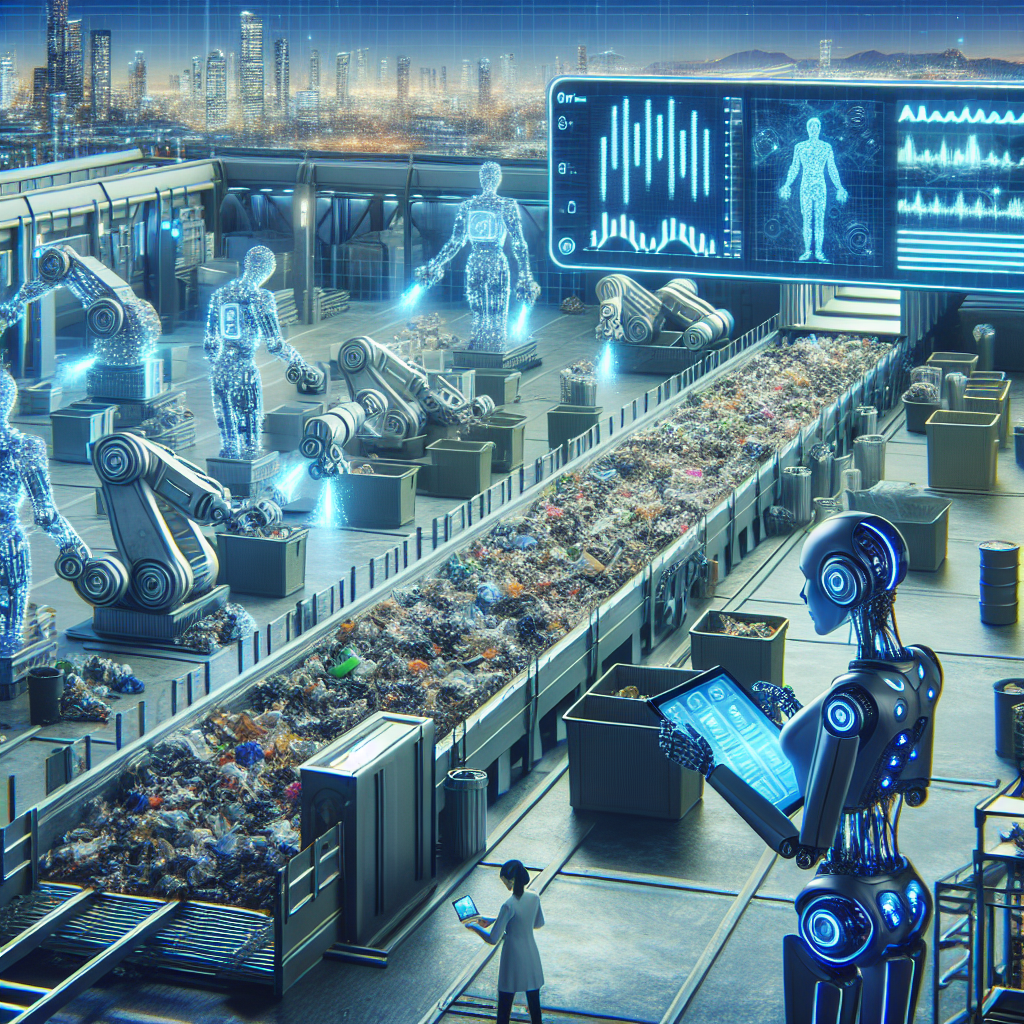“`html
AI in Waste Management
Hey there! Have you ever wondered how Artificial Intelligence is changing the way we handle waste? It’s a fascinating topic that marries technology with sustainability, and I’m here to dive into some common questions you might have about it. Let’s get started!
What is AI in waste management?
Great question! AI in waste management refers to the use of advanced algorithms and machine learning techniques to optimize the process of collecting, sorting, recycling, and disposing of waste. It’s like giving a brain to garbage processes to make them smarter and more efficient.
How does AI improve waste sorting?
AI turns the traditional, often manual, waste sorting process into a high-tech operation. Here are some ways AI makes a difference:
- Automated Sorting: Robots equipped with AI can identify and sort different types of waste materials, ensuring that recyclables are separated from non-recyclables.
- Image Recognition: AI systems use cameras and sensors to examine waste on conveyor belts. They recognize items and categorize them accurately, reducing contamination in recycling streams.
- Learning and Improving: With machine learning, these systems get better over time, enhancing their sorting accuracy and efficiency.
Can AI help reduce waste overall?
Absolutely! AI isn’t just about sorting; it’s about the whole lifecycle of waste management. Here’s how AI contributes:
- Predictive Analytics: AI can forecast waste generation patterns, helping municipalities plan and allocate resources more effectively.
- Route Optimization: For waste collection trucks, AI can determine the most efficient routes, minimizing fuel consumption and reducing carbon emissions.
- Smarter Recycling Programs: By analyzing data, AI can help design more effective recycling programs that reduce waste and improve participation rates.
Is AI in waste management cost-effective?
While the initial investment in AI technology can be significant, the long-term benefits often outweigh the costs. Efficiency gains, reduced operational costs, and the environmental benefits make it a smart investment. Plus, as the technology advances and becomes more widespread, costs are expected to decrease.
What are some real-world examples of AI in waste management?
Great question! There are several exciting examples from around the world:
- AMP Robotics: This company uses AI-powered robots for sorting recyclables with impressive speed and accuracy.
- Waste Management (WM): North America’s leading waste disposal company uses AI for route optimization and operational efficiency.
- Smart Bins: Cities like Singapore are deploying smart bins equipped with sensors that alert when they’re full, optimizing collection schedules.
Are there any challenges or concerns with AI in waste management?
Like any technology, AI in waste management comes with its own set of challenges:
- Initial Costs: Implementing AI technology can be expensive initially.
- Data Privacy: Collecting and analyzing large amounts of data raises concerns about privacy and data security.
- Technical Skills: There’s a need for skilled personnel to manage and maintain AI systems.
Overall, the potential benefits far outweigh these challenges, especially as technology continues to evolve.
Final Thoughts
AI in waste management is an exciting development that promises to make our world cleaner and more sustainable. By harnessing the power of technology, we can revolutionize the way we handle waste, from our homes to large-scale industrial operations. If you’re passionate about sustainability, this is definitely a space to watch!
Got more questions? Feel free to ask. Let’s keep the conversation going!
“`
